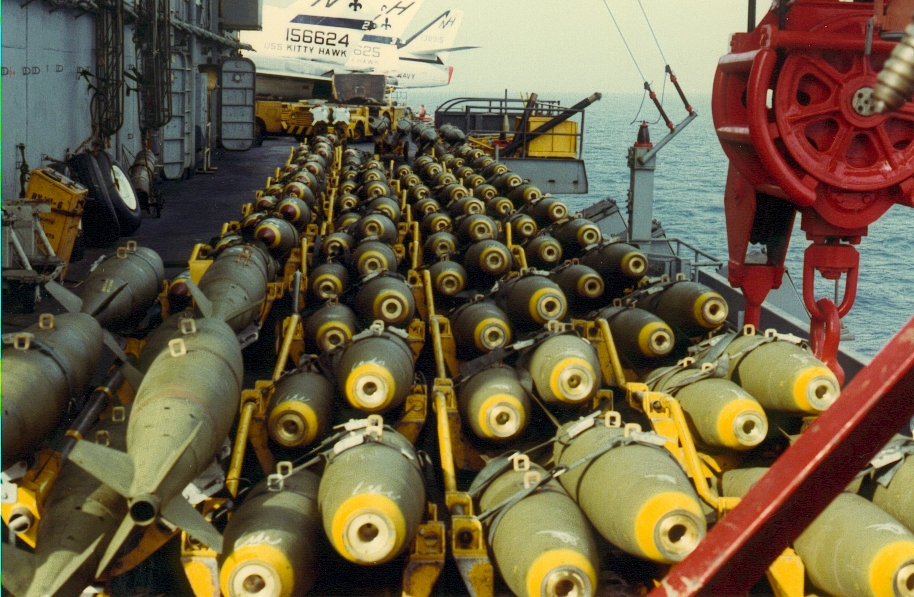The New York Times, in a video report published on its website, has brought attention to the production of bombs by RWM Italia S.p.A. in Sardinia and exported to Saudi Arabia. It is more than likely that the country ruled by the Emirs has used these weapons in its ongoing war against Yemen, waged without any legitimacy from the point of view of international law, in coalition with the UAE, Egypt, Kuwait, Qatar and Bahrain.
But what is RWM Italia S.p.A., or, better put—whose is it? When it comes to corporate responsibility, particularly regarding companies in the defense sector, it is crucial to ask this question.
The Fondazione Finanza Etica (Ethical Finance Foundation), together with the Rete Italiana per il Disarmo (Italian Network for Disarmament) and the German NGO Urgewald, decided to pose this question, and on May 9 became involved in an operation of critical shareholding, acquiring a minimum of shares and thus making use of the rights available to each shareholder at the general shareholders’ meeting of Rheinmetall AG, a German company founded in 1889, now an industrial group spanning two sectors: Rheinmetall Defence and Rheinmetall Automotive.
This company is a leader in the defense sector, as well as in sustainable transportation (one may note their shrewdness: they make deadly weapons, but also sustainable cars!), with 23,000 employees and a revenue of €5.6 billion. Rheinmetall holds 100 percent of RWM Italia S.p.a., which has three facilities: in Rome; Ghedi, Brescia; and Domusnovas, near Cagliari.
At the general shareholders’ meeting of the German parent company, we asked why they had decided to export their bombs to Saudi Arabia through Italy and not directly from Germany.
We suggested that the company may have feared that the German government would not provide the necessary authorizations, since on April 30 Die Zeit reported the news that Saudi Arabia had stopped asking for Germany’s permission for the importing of weapons in order to avoid putting the German government in an embarrassing position.
But why wouldn’t the Italian government be subject to the same embarrassment?
We think they would have been, and perhaps they were, because in the final report of the Presidency of the Council of Ministers on the arms trade for the year 2016 (mandatory under Law 185/1990), delivered to Parliament on April 26, one can verify that RWM rose to third place in terms of revenue in the defense sector (with 45 new exports authorized by the Foreign Ministry, for a total of €489.5 million — €460 million higher than in 2015).
In particular, the report highlights a RWM contract worth €411 million for the export of 19,675 bombs, but does not indicate the customer, and so avoids telling us which country they would be sent to.
However, the 2016 financial report of Rheinmetall (which, as shareholders, even if only critical ones, we had the right to read and analyze) mentions a “very significant order” for “ammunition” worth €411 million, by a “client from the MENA [Middle East and North Africa] region.”
Here is the solution to the mystery, which the embarrassed but shrewd Italian government was not willing to disclose, as it should have under Law 185/1990:
“The export and the transit of arms to countries in a state of armed conflict are prohibited, except in the case of decisions by the Council of Ministers, which are to be adopted with the consultation of the Chambers of Parliament.” (Law 185/1990)
Since we are discussing this law, we should also highlight what it says in Article 1 (“State Control”): “The export, import and transit of military equipment … must comply with the foreign policy and defense policy of Italy. Such activities are to be regulated by the State according to the principles of the Republican Constitution, which rejects war as a means of settling international disputes.”
In answer to a question in Parliament, Prime Minister Paolo Gentiloni stated (just like Minister of Defense Pinotti had earlier, responding to a journalist) that this transaction was perfectly legitimate and carried out within the boundaries of existing law.
This statement can only mean one thing: that the export of bombs to a country involved in a war that is not justified under international law (i.e. Saudi Arabia) must have been duly authorized by the government. Yet, unfortunately for Gentiloni (although no less so for the Yemenis), this does not mean the transaction is legal.
It is not, and for two reasons: first of all, because activities having to do with arms transactions are authorized (“regulated”) by the state only under the constitutional principle of the rejection of war as a means of settling international disputes (Article 11 of the Constitution), which, of course, as stated by Article 1 of Law 185/1990, is a principle that applies not only to the wars in which Italy is participating directly, but to all the wars in which Italy is involved, even if only through arms transactions.
Second of all, it is not a lawful transaction because the same Law 185/1990 prohibits the export of arms “to countries in a state of armed conflict, which is contrary to the principles of Article 51 of the Charter of the United Nations” (Art. 1, section 6, paragraph a).
Here we see how critical shareholding can also help us understand the complex international relationships and the joint responsibility of both the corporation and the government (which, in this as in other fields, has the main control functions), which are playing out in many types of economic activities in our globalized world.
It can also strengthen the activities of civil society, which is trying to make the political sphere, often distracted and engaged in petty fights and issues of little import, aware of questions of constitutional and humanitarian importance such as this one.
It doesn’t matter that the government has been put in an embarrassing position. It would be better if Parliament were to fully exert its attributions as a controlling body, as well as one that oversees the implementation of the principles of the Constitution.
Mauro Meggiolaro are Simone Siliani are with the Fondazione Finanza Etica (Ethical Finance Foundation)

